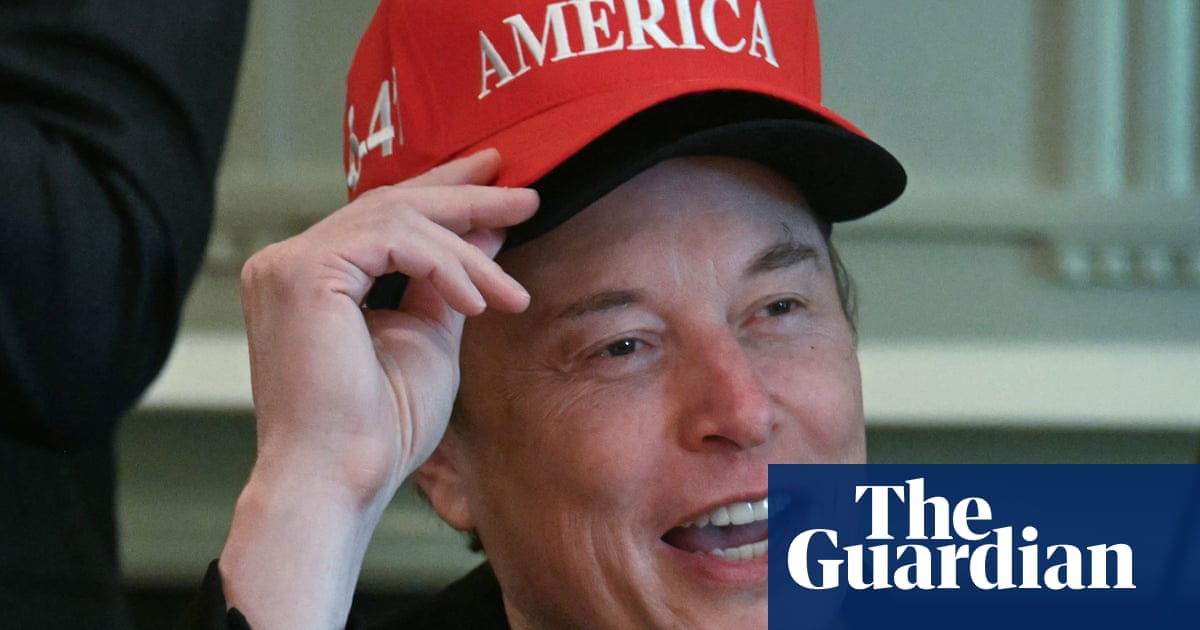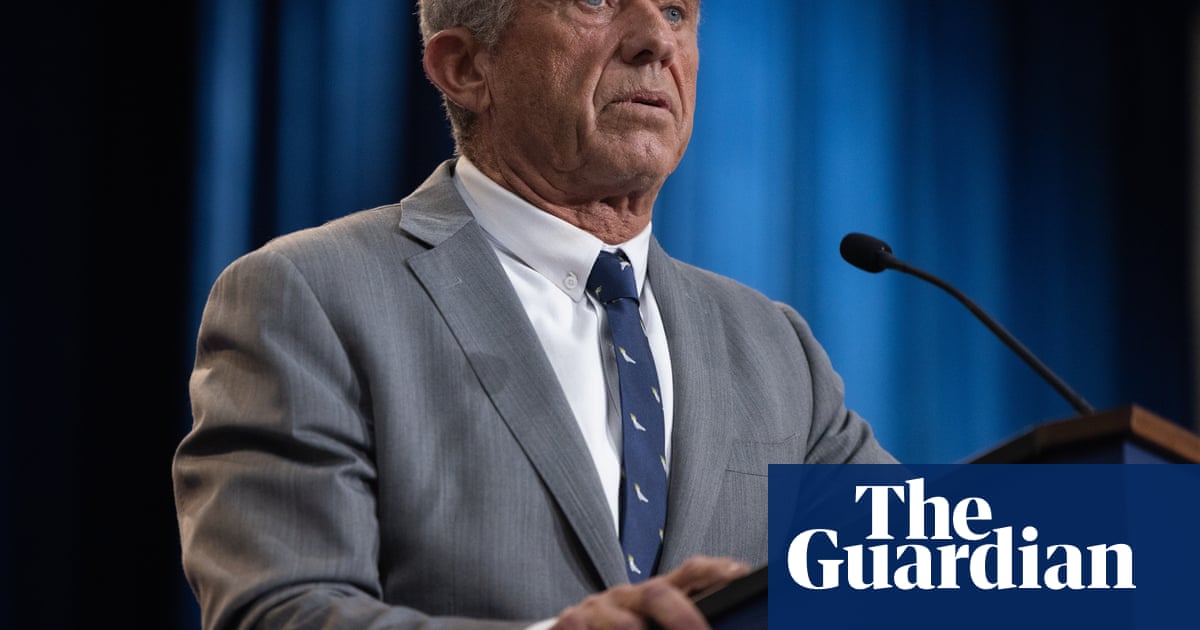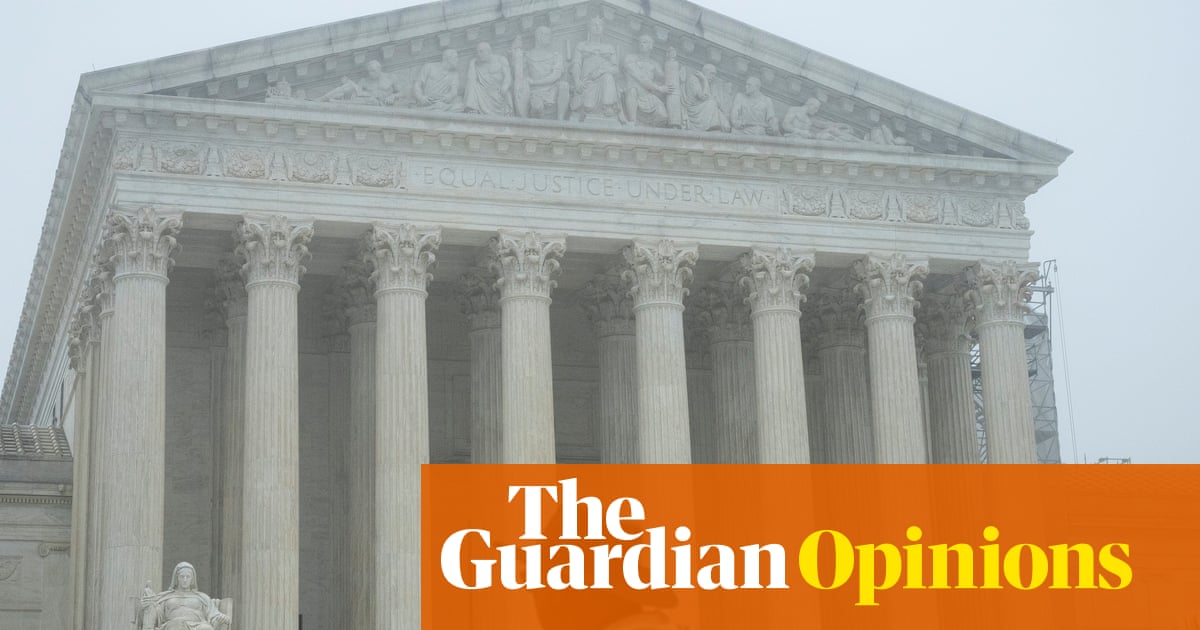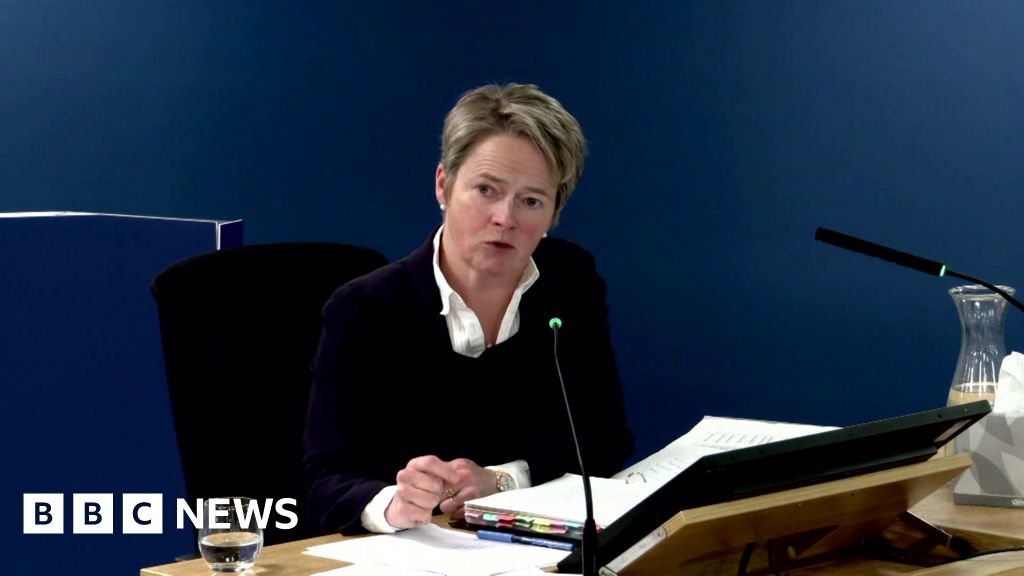Donald Trump issued his declaration of war against his “enemies within” at the Department of Justice on 14 March. Thus the president launched a constitutional crisis that encompasses not just a group of migrants snatched without due process and transported against federal court orders to a foreign prison, but a wholesale assault on virtually every major institution of American society.
“We will expel the rogue actors and corrupt forces from our government. We will expose, and very much expose, their egregious crimes and severe misconduct,” he pledged. “It’s going to be legendary.”
Trump’s speech condensed his mission to its despotic essence. While he distilled his contempt, Trump also marked his disdain for the traditional conservatism of limited government, respect for the law and liberty. He defined his project, built on his executive orders as substitutes for the law, to crown himself with unrestrained powers to intimidate, threaten and even kidnap. His political philosophy is a ruthless quest for absolute power.
Trump hailed his appointees for being “so tough” – the enthusiastically compliant attorney general, Pam Bondi, and the irrepressible flunky FBI director, Kash Patel. He attacked lawyers whose firms he would issue executive orders against to eviscerate their work – “really, really bad people”. He claimed Joe Biden and the former attorney general Merrick Garland “tried to turn America into a corrupt communist and third world country”. And he described “people that come into our country” as “stone cold killers. These are killers like – they make our killers look nice by comparison. They make our killers look nice. These are rough, tough people with the tattoos all over their face.” Trump’s accusations are invariably projections of his own malice that he manufactures into politically pliable paranoia.
No staff attorneys within the department were invited to the speech, as people at the justice department told me. The senior lawyers from the Public Integrity Section had already resigned when Trump attempted to coerce them to participate in dropping the prosecution of New York City’s mayor, Eric Adams, for corruption in exchange for his support of Trump’s coming roundup and deportation of migrants. After Trump, a convicted felon, concluded by comparing himself to Al Capone, the mafia boss convicted of tax evasion – “the great Alphonse Capone, legendary Scarface, was attacked only a tiny fraction of what Trump was attacked” – Trump’s theme song from his political rallies, YMCA, blared out of the loudspeakers in the department auditorium.
The next day, Trump announced his executive order citing the Alien Enemies Act of 1789, a wartime measure, to incarcerate members of the Tren de Aragua gang he asserted were coordinating with the Maduro government of Venezuela to commit “brutal crimes, including murders, kidnappings, extortions, and human, drug, and weapons trafficking”. (On 20 March, the New York Times reported: “The intelligence community assessment concluded that the gang, Tren de Aragua, was not directed by Venezuela’s government or committing crimes in the United States on its orders, according to the officials, speaking on the condition of anonymity.”)
The 238 men abducted were taken without any due process to a maximum security prison operated by the Salvadoran strongman Nayib Bukele, who calls himself “the coolest dictator” and whose government is being paid at least $6m in an arrangement with the Trump administration.
In a hearing on 24 March before the US court of appeals for the DC circuit, Judge Patricia Millett, criticizing the absence of due process, said: “Nazis got better treatment under the Alien Enemies Act.” She asked the deputy assistant attorney general, Drew Ensign, arguing the administration’s case: “What’s factually wrong about what I said?”
“Well, your Honor, we certainly dispute the Nazi analogy,” he replied.
Trump’s assertion of emergency power under the Alien Enemies Act is more than a bit analogous to the ideas of Carl Schmitt, the chief legal scholar and apologist of the Nazi regime, “Crown Jurist of the Third Reich”. The falsity, according to the intelligence community, of Trump’s claim about the men underlines the analogy of Trump’s argument to Schmitt’s. “Authority, not truth, produces law,” Schmitt wrote. “Sovereign is he who decides on invocation of the state of emergency.” And then: “Der Ausnahmefall offenbart das Wesen der staatlichen Autorität am klarsten” – “The State of Emergency reveals most clearly the essence of the authority of the state … The exception is thus far more important that the ordinary rule. The normal state of affairs shows nothing; the emergency shows everything; it confirms not only the rule, rather the rule derives strictly from the emergency.”
The ACLU filed a lawsuit on 15 March before chief judge James Boasberg of the US district court of the District of Columbia to halt the flight to El Salvador. The judge issued an order for the planes to return to the US, but the Trump administration defied it.
Trump’s defiance has set in motion a flurry of legal challenges and court cases heard in district courts and circuit courts of appeals, as well as the supreme court. On 7 April, the court ruled that the detainees had the right to due process, which they were denied. On 11 April, the justices unanimously ordered the administration to facilitate the return of one wrongly taken individual, Kilmar Ábrego García, a legal resident of Maryland who was identified by his family and had no criminal record. On 19 April, the court temporarily blocked a new round of deportations under the Alien Enemies Act.
CBS’s 60 Minutes reported: “We could not find criminal records for 75% of the Venezuelans.” Bloomberg News reported that about 90% had no criminal records.
On 14 April, Trump welcomed Bukele to the White House. Trump has turned the Oval Office into his small stage with cabinet secretaries and staff seated on the couches as his chorus. Bukele was dressed in black casual wear, but not admonished by JD Vance as he had criticized Ukraine’s Volodymyr Zelenskyy for supposedly showing disrespect to Trump by not appearing in a suit and tie.
Trump and Bukele played the scene as a buddy movie, kidding each other, but not kidding, about repression. “Mr President,” said Bukele, “you have 350 million people to liberate. But to liberate 350 million people, you have to imprison some. That’s the way it works, right?”
“The homegrowns are next, the homegrowns,” said Trump. “You’ve got to build about five more places.”
“Yeah, we got the space,” Bukele said.
When the question of Ábrego García was raised by a reporter, Bondi said: “That’s not up to us,” and that it was “up to El Salvador”.
“Well, I’m – supposed you’re not suggesting that I smuggle a terrorist in the United States, right?” Bukele replied. Trump reassured him: “It’s only CNN.” Bukele called the question “preposterous”.
“Well, they’d love to have a criminal released into our country,” said Trump. “These are sick people. Marco, do you have something to say about that?” It was another test of the secretary of state’s sycophancy. Marco Rubio rose to the occasion. “No court in the United States has a right to conduct a foreign policy of the United States,” he said. “It’s that simple. End of story.”
Standing behind Rubio, Trump’s most influential aide and the architect of his immigration policy, Stephen Miller, chimed in: “To Marco’s Point, the supreme court said exactly what Marco said. That no court has the authority to compel the foreign policy function in the United States. We won a case 9-0. And people like CNN are portraying it as a loss, as usual, because they want foreign terrorists in the country who kidnap women and children.”
But a reporter attempted to point out that the court had in fact ruled it was illegal to deprive the captives of due process. “Well, it’s illegal to, so I just wanted some clarity on it,” he asked. Trump jumped in: “And that’s why nobody watches you anymore. You have no credibility.”
On 17 April, the day the supreme court ruled on Ábrego García, on Trump said, “I’m not involved in it,” though he had signed the executive order that authorized his kidnapping. Trump was reverting to the tactic of denial, however patently ludicrous, that he had been schooled in originally by Roy Cohn, the Republican power broker and mafia lawyer who had been his private attorney. The Trump administration continues to claim it has no control over the captives in the Salvadorian prison and they cannot be returned.
Trump’s disavowal of responsibility made the homeland security secretary, Kristi Noem’s, visit to the prison to tape a video on 26 March problematic on several levels. If Trump has no control, then how was Noem allowed the run of the place? If the prisoners were combatants under the Alien Enemies Act, then their status made her appearance a violation of the Geneva convention’s Article 1 that outlaws “outrages upon personal dignity, in particular, humiliating and degrading treatment”, and Article 13 that prohibits “acts of violence or intimidation” and “insults and public curiosity” – that is, using prisoners for propaganda purposes.
If Schmitt’s argument is not Trump’s argument, the difference has certainly not confused the judges handling the cases. Boasberg ruled that the Trump administration had acted with “willful disregard” for his order and, while contempt proceedings were paused, threatened to appoint a special prosecutor if the Department of Justice declines to do so.
The Maryland federal judge Paula Xinis, who ordered the administration to return Ábrego García, said on 15 April she had seen no evidence of progress. She ruled on 22 April that such stonewalling “reflects a willful and bad faith refusal to comply with discovery obligations … That ends now.”
She also stated: “Defendants must supplement their answer to include all individuals involved as requested in this interrogatory.” That discovery process might range into stranger precincts of Maga depths than imagined. The New Yorker reported on “a Maga salon” at a tech billionaire’s Washington residence to which a Republican lobbyist, Andrew Beck, brought Trace Meyer, self-described as the “Babe Ruth of bitcoin”, where they discussed with state department staffers the “work-in-progress plan” for abducting migrants to El Salvador. The officials had reached “an impasse in the negotiations. Meyer, through his crypto connections, was able to help reopen the conversation.” Add to the discovery list: Beck, Meyer and the state department officials.
In denying the Trump administration’s motion for a halt in the Xinis ruling, Judge J Harvie Wilkinson III, of the court of appeals for the fourth circuit, issued a thunderous opinion on 17 April, marking a historic break between principled conservatism and Trump’s regime. Wilkinson is an eminent conservative figure within the judiciary, of an old Virginia family, a clerk to Justice Lewis Powell, and a Ronald Reagan appointee revered in the Federalist Society.
“The government,” Wilkinson wrote, “is asserting a right to stash away residents of this country in foreign prisons without the semblance of due process that is the foundation of our constitutional order. Further, it claims in essence that because it has rid itself of custody that there is nothing that can be done. This should be shocking not only to judges, but to the intuitive sense of liberty that Americans far removed from courthouses still hold dear.”
Wilkinson concluded with a siren call about Trump’s threat. “If today the Executive claims the right to deport without due process and in disregard of court orders, what assurance will there be tomorrow that it will not deport American citizens and then disclaim responsibility to bring them home? And what assurance shall there be that the Executive will not train its broad discretionary powers upon its political enemies? The threat, even if not the actuality, would always be present, and the Executive’s obligation to ‘take Care that the Laws be faithfully executed’ would lose its meaning.”
Wilkinson has defined the stark conflict headed toward a unstoppable collision. Against Trump’s appropriation of Schmitt’s authoritarian logic, the conservative jurist has thrown down the gauntlet of American constitutional law. Trump’s disdain for that sort of conservatism moves the cases again and again toward the conservative majority of the supreme court, which must decide its allegiance, either like Wilkinson, to the constitution, or instead to Trump’s untrammeled power that would reduce the court itself to a cipher.
-
Sidney Blumenthal, a former senior adviser to President Bill Clinton and Hillary Clinton, has published three books of a projected five-volume political life of Abraham Lincoln: A Self-Made Man, Wrestling With His Angel and All the Powers of Earth

 German (DE)
German (DE)  English (US)
English (US)  Spanish (ES)
Spanish (ES)  French (FR)
French (FR)  Hindi (IN)
Hindi (IN)  Italian (IT)
Italian (IT)  Russian (RU)
Russian (RU)  1 month ago
1 month ago























Comments